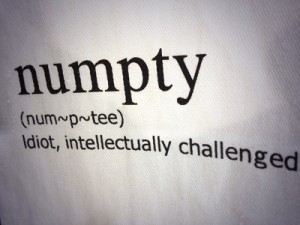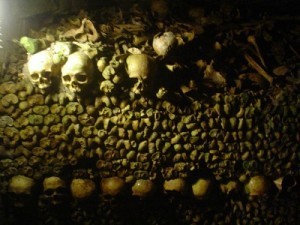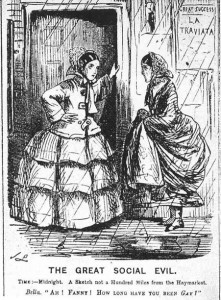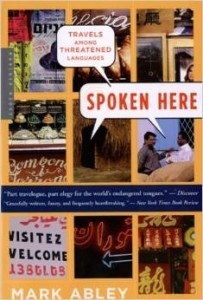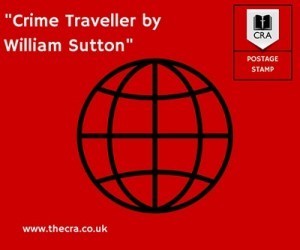William Sutton's Blog, page 42
September 3, 2014
Writer [Wednesday Word]
Writer: a peculiar organism capable of transforming caffeine into books.
It was via Pinterest I found this definition of our unruly trade. I was testing its veracity today @southseacoffee where this exquisite flat white blew my head off. The best coffee I have had all month. Thanks.
I was rescued from a perilous bout of overwritten metaphors by Tessa Ditner, with whom I chatted about love, death and Portsmouth Fairy Tales.
Portsmouth Fairy Tales Documentary from Elysium Eight on Vimeo.

August 28, 2014
Numpty [the Wednesday Word]
Scotland. As a dreich afternoon in Perthshire reflects the current dark pallor of the nation’s mood, gorged on intoxicating rhetoric and hot referendum debates, it seems apt to share a word dear to all Scots to decribe their enemies, their friends, and most of all themselves.
Courtesy of a Scots dictionary tea towel purchased at the mighty Gretna Green services. Along with a Scottish passport.

August 22, 2014
Dancing on the Dead
Campbell Lawless is having a few sneaky outings between novels. Thanks to performances and magazines, Lawless has ventured into the short fiction format, encountering Delinquents in Pentonville, Pickpockets at Piccadilly, and Three tasty little Piglets in Portsmouth’s Spice Island. These will be collected anon into a tidy little volume, and the Portsmouth Fairy Tales contributions may be heard in Portsmouth Book Fest this October.
“I was new to the force, and new to the face of death. When my mother was taken by the cholera in’ 42, the custom was to hide the whole shebang from children. I was at school when she passed; at my godfather’s when she was buried.”
Researching my latest, working title Parson Tombstone, or Dancing on the Dead, I was astonished, not for the first time, to find Victorian fact wilder and darker than Victorian fiction. I recalled the tale of a vicar who’d profited by cramming as many burials beneath his church as he could, periodically turfing the bodies into the Thames and burning the coffins.
It took moments to check this on Lee Jackson’s extraordinary Victorian London site, where a visiting American laments Londoners’ ways with death.
But passing reference to St Enon’s Chapel shocked me. I’ve written about the Paris and Rome catacombs.
This scandal contributed to burial reform in the Burial Act 1852, which closed burial grounds within metropolitan London and allowed the establishment of large cemeteries in the then surrounding countryside in the mid-19th century.
Between scoring a licence for burials in 1823, till his death in 1842, the minister buried 12,000 people in a crypt 12 ft by 59 ft, while the faithful swooned and fainted from the aroma rising at their feet. Inspiriting stuff. Not to be outdone, the new owners bricked over the floor, laid a dance floor, and advertised Dancing on the Dead as their attraction – admission thrupence. Though a surgeon reburied the bodies at his own expense (in a single pit in Norwood), George Sanger, the circus impresario, gave up refitting it as a pantomime/circus venue when he learned that the remains of the minister still lay beneath.
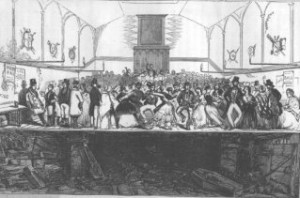
Coffins piled in confusion – quantities of bones were mixed with the earth, and lying upon the floor of this cellar (for vault it ought not to be called ), lids of coffins might be trodden upon at almost every step.
More in George Sanger’s Seventy Years a Showman.

August 20, 2014
Bookish terminology [the Wednesday word]
Do you book shimmy? Here is some bookish terminology culled from the nice people at EpicReads.com.
I particularly recognise the book shimmy. Ooh. Mmm.
And Book Hangover is the excuse I gave my philosophy teacher at a 9am tutorial after reading 100 Years of Solitude all night instead of writing my essay.

August 14, 2014
Blooming Flowers
For those awaiting Lawless and the Flowers of Sin, which was due to be published on 1st August 2014, my apologies. The publisher AngryRobot has withdrawn their whole crime imprint Exhibit A.
Despite this untimely delay, we hope to secure a publisher soon for ever so contemporary tale of Victorian salacity. Lawless and the Devil of Euston Square garnered fans on both sides of the Atlantic and remains available. Pre-orders for Flowers of Sin were by all accounts healthy. A GoodReads review says: “For those who like their Victorian detective fiction with a hefty dose of realism, this is the book for you. It’s worth the read for Skittles alone (she’s my favorite character out of the bunch.)”
“Gabe!” A lady dressed as a peacock waddled out of the cloister and hallooed us. Only now did I realise who he was; who they were. You must remember, these were the days before every scandal had to be luridly engraved in the illustrated press, styling the characters Greek heroes; before every half-baked headline was adorned with daguerreotypes of the latest politician, the latest singer, the latest dustman. “Gabe, are you drinking? Should you be? You know what always happens when you drink.” She made a face at me, glanced at me, and standing between her husband and the party rubbed his crotch.
I blinked, unable quite to believe what I’d seen.
“Bloody Brodie and his news hounds.” She rolled her eyes. “Well. A woman will be satisfied.” And off she went.


July 30, 2014
Lost verbs [the Wednesday Word]
In this occasional series on vocabularies lost and overlooked, I shall explore slang old and new, borrowed words, malapropisms, spoonerisms, inspirations for my Victorian urchins’ fruity expression and inspirations for different ways of thinking.
Today’s word falls in two remarkable categories: words from another language that express something we cannot express so economically, and words from dying languages. I saw Mark Abley speak at the Edinburgh International Book Festival in 2006 about his book Spoken Here: Travels Among Threatened Languages (UK) or Spoken Here: Travels Among Threatened Languages (US).
It’s a beautiful meditation on languages, their riches, their transience, their preciousness, their ineluctability.
In his article The Verbs of Boro Mark Abley tells us why we may never have heard of Boro:
“Boro is a language of northeastern India that spills over into neighboring countries: Nepal, Bhutan, Bangladesh. Most of its speakers live on the north bank of the Brahmaputra River. The language goes by other names too: Mech, Kachari, and (now the most common) Bodo. Whatever name you choose, it’s one of well over 200 languages in the fertile subfamily of Tibeto-Burman. Nearly all these languages, being indigenous to a small area, have never had great numbers on their side — Boro is one of the very few that may be spoken by as many as a million people. Its speakers are usually fluent in Bengali or in Dr. Bhattacharya’s mother tongue, Assamese.”

July 28, 2014
Crime Traveller
Thoughts written for Red Herrings magazine and posted by the Crime Readers Assocation.
Crime Traveller
William Sutton
I used to envy modern linguists swanning off for their third year abroad. I studied Classics; I wished I could take a sabbatical in ancient Athens or Rome. Years later, when I ran away to Brazil, I never imagined that immersing myself in São Paulo would bring Victorian London to life: stark inequalities, irrepressible urchins, stinking river.
DOING A GEOGRAPHICAL
Living abroad has pros and cons for a writer. You are lonely, so you might as well write; everything is new, so you must explore. You stand out, your identity overwhelmed; yet you talk to people on buses, licensed to reinvent yourself. David Greig writes about the futility of ‘doing a geographical’: thinking everything will change just because you’re somewhere else. Alain de Botton’s The Art of Travel laments the moment when you realise you have inadvertently brought yourself on holiday.
But place does change us. That feeling of strangeness is invaluable. If nothing else, it opens your eyes and ears to characters and events. The acrobatic binmen. The self-educated laundry owner. The dignified streetsweeper who lugubriously blessed me each morning. The woman cursing the World Cup for obscuring the real problems (and this was 2002). The drug squad policeman with bad habits. Keen-eyed thieves on Rio beach. The broomseller creaking our gate, that infuriating summons with which I began my Victorian tale, Lawless and the Devil of Euston Square.
And language. Being an outsider makes you hear language afresh. The gulf between phrase book language and spoken slang opened my eyes. In streetsellers’ clandestine communications, I heard echoes of East End dialects, bamboozling ‘straight’ people with backslang, coster-slang, argot and polari.
CRIMES LARGE AND SMALL
A city with over ten murders a day, São Paulo deserves its reputation: sprawling megacity, crawling traffic, modernity endlessly erasing colonial elegance. The wealthy live in gated communities; the favelas lack basic amenities. At night, drivers don’t stop at red lights lest they’re carjacked, and cashpoints don’t function so kidnappers can’t demand cash withdrawals. Yet the life I lived there felt peaceful. They only kill their own.
In Rio, though, a kid snatched my friend’s necklace from round her neck. So bold a theft, I could barely believe it. A British army platoon went swimming at Copacabana, their valuables guarded by two imposing squaddies; two runners materialised from the crowds, snatched it from between their knees, and vanished, to the squaddies’ fury.
What can drive such audacity? Two factors: inconsistent rule of law, and inequality. It is worth the risk.
But it wasn’t the small crimes that surprised. At a recent panel, I was asked why crime novels focus on individuals rather than corporate crime. Brazilians know the big abuses that cripple their country. They have vast resources, diversity, dynamic workforce. How does such poverty persist?
Because it has always been thus. They accept that corporations are corrupt (but inevitable), that politicians exploit (why wouldn’t they?), that the wealthy elite control the nation (but do great work for charity). It becomes unacceptable when people can’t eat, despite international festivals; when people live in boxes by the insanitary river; when honest workers with two jobs can’t support families, despite vast infrastructure spending.
My studies of Victorian London came vividly alive. The Metropolitan line was built to whisk workers into the City. Bazalgette’s sewers tackled cholera the Great Stink. International exhibitions stirred protests over persistent slums. You could tour Jack the Ripper’s East End, just as you may visit favelas. A riot by Pacaembu Stadium sounded just like one I’d read of in A Tale of Two Cities.
São Paulo, London.
NOTHING TO BE ASHAMED OF
My landlady was from a wealthy Anglo-Brazilian family fallen on hard times, a cross between Rigsby and Blanche DuBois. When our maid’s mother was killed in a car accident, I asked her advice on how to express my regret. She told me the phrases, frowning. “There’s really no need to say anything. These people – they don’t feel such things.”
A shocking sentiment, for us. But not surprising in Dickens’ London. Nor in my landlady’s Brazil. Nor in many circles of privilege. One thinks of certain corridors of power closer to home. As Douglas Adams put it, some may be extremely rich, but that’s nothing to be ashamed of, because nobody is really poor – at least nobody worth speaking of.
Wherever the super-rich neighbour the desperately poor, there is danger. Brazil remains a tinderbox. This made Victorian London alive with threat. São Paulo’s street crimes followed directly from systemic injustice. Travel made history real in a way no research could.
Quite how Britain averted revolution is still under debate. Certainly enfranchisement, unionisation, education, housing and healthcare reduced the wildest inequality; yet some would say real change was subverted by bread and circuses: department stores and mortgages, sports and patriotism.
Where do you go to revisit the past? For my second novel, Lawless and the Flowers of Sin, I have drawn vital lessons from my two years in southern Italy in sexual hypocrisy, organised crime, political reinvention and moral bankruptcy (there being such a shortage of these vices at home). I’d love to hear where other novelists find their history coming to life.

First published in Red Herrings.

July 27, 2014
Mapmaking for Flowers
I love a map.
This is the way we make a map, we scribble thoughts, we steal ideas, we try out fonts and scrunch them up, then beg for help from those who know, and finally when the map is done, it welcomes the reader into the book. Come hither, it cries, for I am a friendly guide into uncharted territories where you shall, perhaps, meet some of these oddlooking fellows.
Click here or above for a Flickr tour of the mapmaking process. You may scroll through, compare and contrast the stages, or simply press play.
My expert advisor was Rebecca Lea Williams, designer and artist, who not only has a brilliant eye for a map, a font, a peripheral detail, and was effortless in fixing my laborious scribblings. Thanks. I’d been a touch disappointed with the map for Lawless and the Devil of Euston Square. This is the map I wanted.




